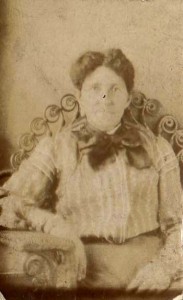Today divorce is very common, but in 1800s and early 1900s it was rarely heard of, especially among African Americans. In my research I found this extraordinary divorce case of two former slaves in Robertson County, Tennessee which detailed the history of their family.
Alford Pitt 1830-1900 and his wife Arry Fort Pitt 1836-1918 were married during slavery and had eleven children. Alford was a carpenter and later accumulated more than 500 acres of land. He had African American and white sharecroppers working his land.
In 1900, Arry filed for divorce from Alford stating that he had an affair with two black women and one white one. She stated that she had worked hard to help him amass everything they owned and she was entitled to half. Alford claimed that she had not helped him accumulate his wealth and felt since they married during slavery and never married after they were emancipated that she was not legally his wife and therefore not entitled to any of his property.
The divorce case put a great strain on the Pitt family, their friends and neighbors. Arry had more than fifty witnesses to prove her claims and Alford had nearly as many to support his. Half the children sided with their mother and the others their father.
Arry was represented in court by a family member of her former owners. In 1866, a law was passed in Tennessee which made all former slave marriages legal if the couple continued to live as man and wife.
The courts ordered Alford to give Arry 100 acres of land, $1,000, a horse and buggy and other livestock. Shortly after the verdict Alford died from complications of a cold that he caught from walking to court in bad weather.
Some of the Pitt property is still owned by their direct descendants. A street that runs through the property bears the family name.
Tags: African American Genealogy, African American History, Black Landowners, Divorce, Divorce Cases, Emancipation, family history, family research, Freedmen, Freedmens Bank, Freedmens Bureau, Genealogy & DNA, Oral History, Pitt Family, Slave Family, Slave Marriage, Slavery
